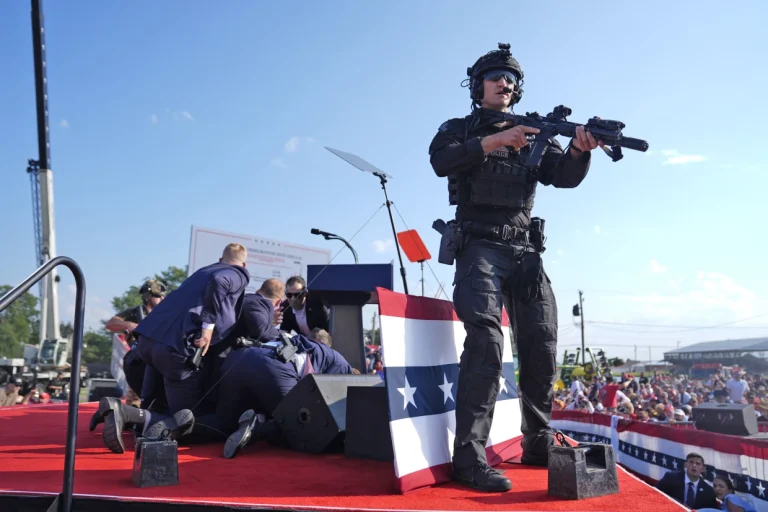Following the shooting at Donald Trump’s Saturday rally, which injured the former president and resulted in a spectator’s death, amid widespread and bipartisan condemnation, some Republicans swiftly pointed fingers at Democrats and liberals.
Trump, responding on social media shortly after the assassination attempt, noted, “Nothing is known at this time about the shooter, who is now dead.” On Sunday morning, he emphasized unity on his Truth Social platform, stating, “In this moment, it is more important than ever that we stand United, and show our True Character as Americans, remaining Strong and Determined, and not allowing Evil to Win.”
However, in the immediate aftermath, several of Trump’s allies speculated on motives influenced by criticism of Trump from his opponents, including President Joe Biden, who strongly denounced the shooting Saturday night. Representative Mike Collins of Georgia went so far as to call for charges against Biden for inciting an assassination.
The reactions highlight the deep polarization in American politics. While top congressional leaders unified in condemning the attack and calling for unity, figures like Senator Rick Scott of Florida pointed fingers at Democrats and media liberals for past rhetoric likening Trump to fascists and inflaming divisions.
The identity and motive of the deceased shooter, 20-year-old Thomas Matthew Crooks, remained unclear initially, yet figures such as House Majority Leader Steve Scalise linked the incident to “incendiary rhetoric” surrounding Trump. Potential vice presidential contenders, Senators JD Vance and Tim Scott, also blamed Trump’s political adversaries for the attack, reflecting ongoing tensions exacerbated by partisan narratives and misinformation.
Amidst calls for unity from some quarters, others continued to fuel divisive rhetoric and unverified claims on social media, underscoring the challenges in bridging political divides and combating misinformation in the current climate.

